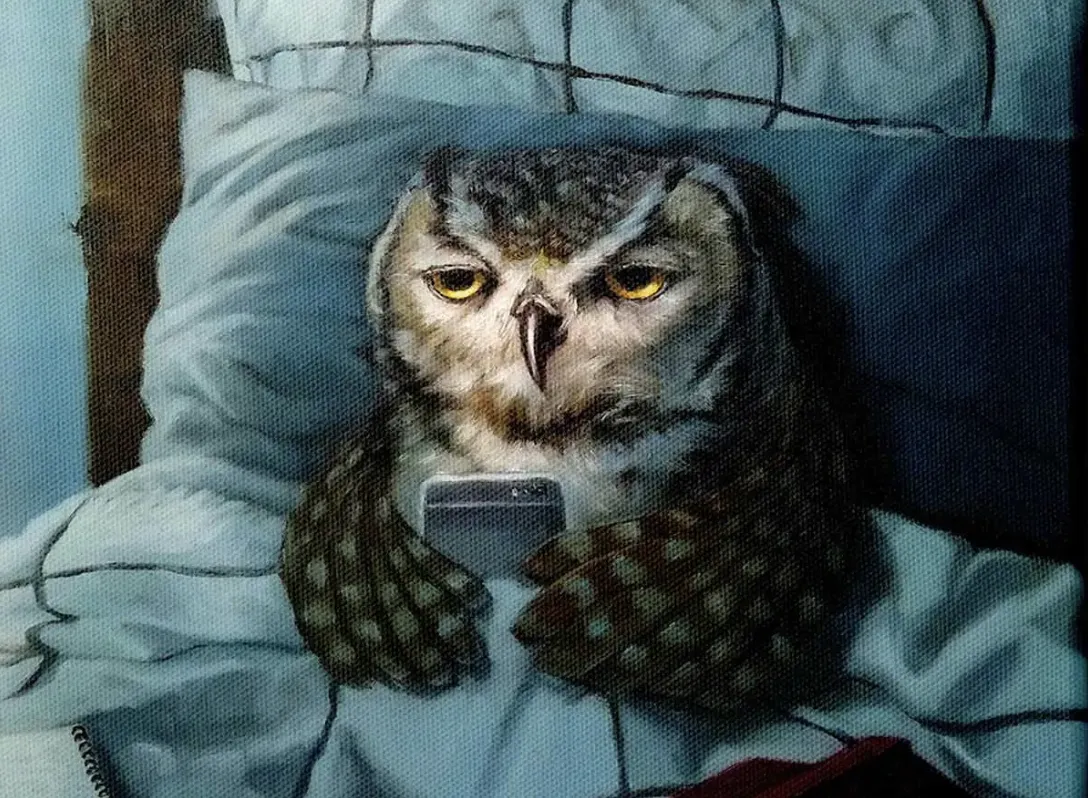
Those Night Owl Habits May Be Harming Your Mental Health
My mom was a night owl. Her mom was a night owl.
I thought I was, too, until having 3 babies in 2.5 years + working in the fitness industry--where lots of larks want to work out at 6 am--transformed me into a lark.
You might call yourself a night owl. Maybe your best ideas don’t show up until 10 p.m., or you love the quiet once the rest of the world is asleep.
I get it.
But new research suggests that those late-night hours come with a cost, especially for your mental health.
A massive study of more than 73,000 adults found that people who regularly stayed up past 1 a.m. had a 20–40% higher risk of developing depression or anxiety.
This was also true for people who are owls by nature.
Even if your biology leans owl, staying up past midnight raises your risk.
The researchers found that:
Morning people who went to bed before 10 p.m. had the best mental health outcomes overall.
Natural night owls did better when they shifted their schedules earlier.
Anyone regularly staying up past 1 a.m.--regardless of chronotype--showed higher rates of depression, anxiety, and mood swings.
Why Sleep Timing Matters
Your body’s internal clock--circadian rhythm--regulates hormone production, mood, immunity, digestion, and how your brain clears waste. Push that rhythm too far off track, and things start to break down.
The hours between 10 p.m. and 2 a.m. are when your body gets its deepest, most restorative rest. Miss that window, and stress hormones stay elevated while mood-regulating systems lag.
You can shift your sleep without becoming a rooster
Small shifts can help reset your clock:
Wind down earlier. Dim the lights, reduce stimulation, and cue your brain it’s bedtime.
Watch your habits. Avoid caffeine after noon. Alcohol before bed disrupts REM sleep.
Try some tools. My bed is my "nest." The Ooler keeps the bed cool, so I can pile on the blankets. It has a white noise option that I've grown to love. Make sure your room's dark. (my neighbors never turn off their landscape lighting....) I've grown to love my sleep mask.
What about blue light?
Last year, the National Sleep Foundation concluded that there wasn’t enough evidence that blue light from screen use before bed impedes sleep.
Blue light can lower melatonin, the hormone that makes you feel sleepy, but research shows the effect depends on
how bright the screen is
how close it is to your eyes
how long you use it
what you're doing
Intense, interactive activities like gaming, social media, or online shopping keep your brain wired.
Watching intense action shows before bed will keep you up. (...ahem....Reacher finale....)
Screen use can help you drift off to sleep. I often wind down by watching comedy reels or Josh Johnson stand-up.
People who struggle with dark, obsessive thoughts before bed may find that watching or reading something relaxing or mindless can help.
If you fall asleep quickly, stay asleep, and wake up rested, you probably don’t need to worry about blue light.
One of the most powerful tools in your longevity toolkit is an earlier bedtime.
You don’t need a perfect routine or to be in bed by 9. But consistency and shifting closer to your body’s natural rhythm can be a game-changer.
Thriving at any age starts with protecting your energy, your focus, and your health.
Good sleep is where it all begins.